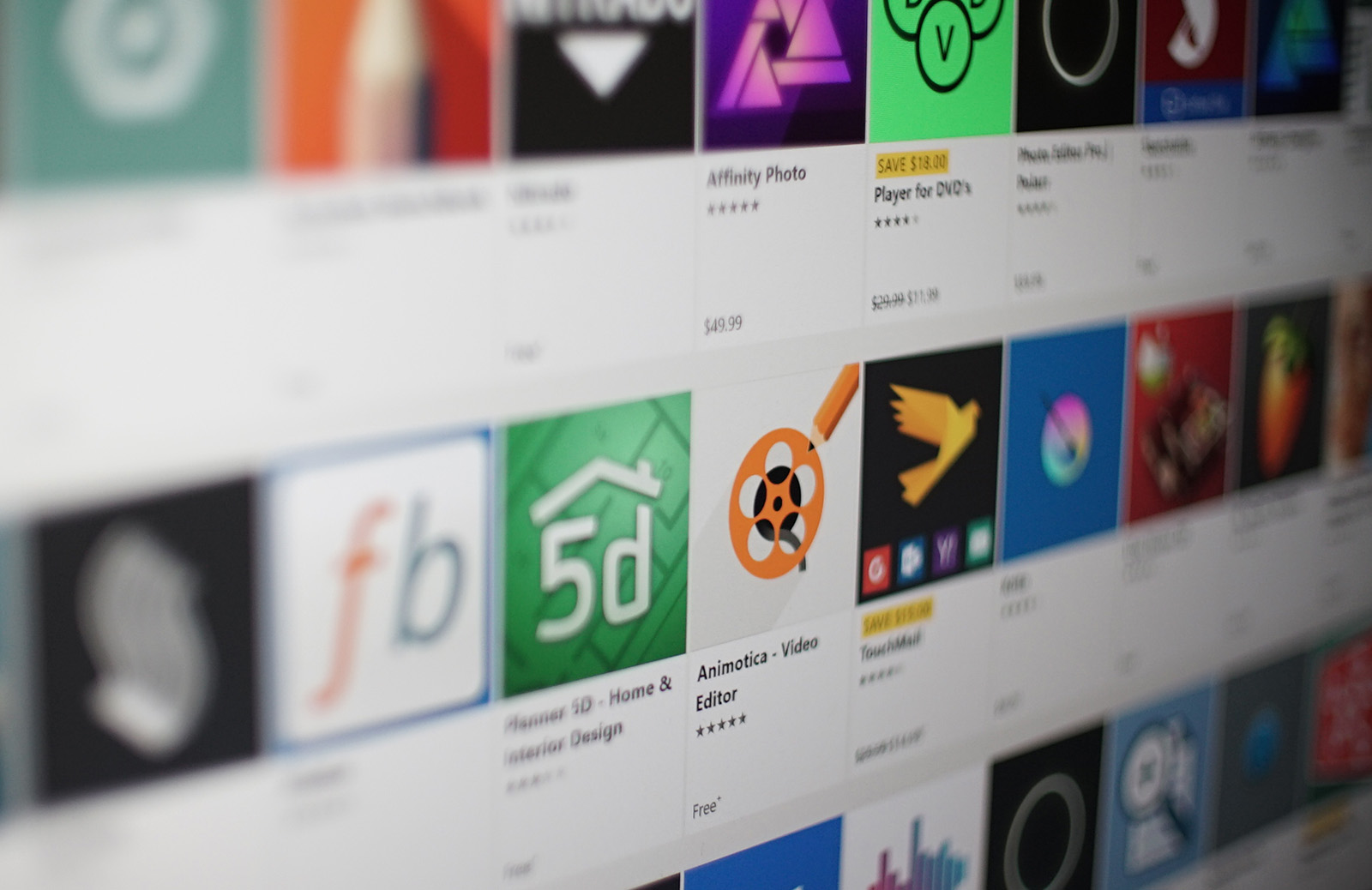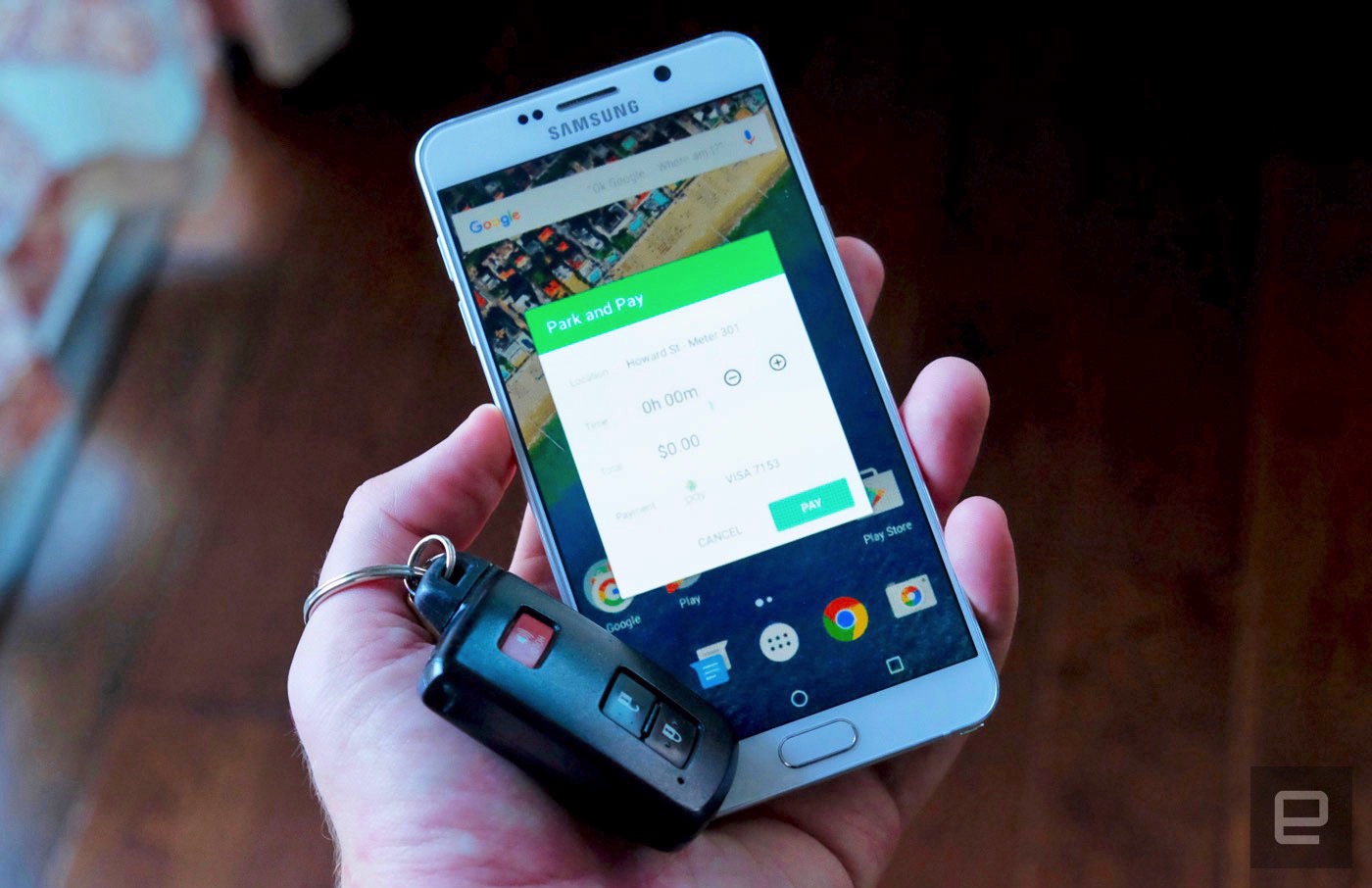Tag Archives: WebApps
Microsoft’s Windows 10 Store is getting more web apps
 Thanks in a roundabout way to Google, you're about to see more apps on the Windows 10 Store. Progressive Web Apps (PWAs) are like app versions of websites that work even when you're offline and offer services like push notifications -- minus the inst...
Thanks in a roundabout way to Google, you're about to see more apps on the Windows 10 Store. Progressive Web Apps (PWAs) are like app versions of websites that work even when you're offline and offer services like push notifications -- minus the inst...
Google for Work has a new name: G Suite
 As predicted, Google for Work has a new name. Calendar, Drive, Docs, Gmail, Maps for Work, Search for Work, Sheets and Slides all fall under "G Suite" now. A few of those items might jump out at you as being Google Apps for Work. It all falls under G...
As predicted, Google for Work has a new name. Calendar, Drive, Docs, Gmail, Maps for Work, Search for Work, Sheets and Slides all fall under "G Suite" now. A few of those items might jump out at you as being Google Apps for Work. It all falls under G...
Google wants to take the pain out of app installs
 If you use a smartphone, you've surely gone through this experience: Someone shares something with you, or you click a link somewhere, and before you know it you're prompted to install an app. You're in a generous mood, so you go through the whole pr...
If you use a smartphone, you've surely gone through this experience: Someone shares something with you, or you click a link somewhere, and before you know it you're prompted to install an app. You're in a generous mood, so you go through the whole pr...
Nest unveils web app developer program, teams up with Control4
Despite its internet connection, Nest's Learning Thermostat has been a closed device so far -- you've had to rely on Nest for new features and software. The company is opening up its platform with the announcement of a developer program. Programmers will soon get to build web apps that link the thermostat to other devices and services, such as home automation equipment. Nest won't start the program until early 2014, but it's already partnering with Control4; eventually, all of Control4's apps and remotes will commandeer Nest hardware. If you're interested in growing the ecosystem, you'll find more details at the source link.
Filed under: Household
Source: Nest
CloudOn launches web editor, CloudOn Pro paid service
Many cloud-based productivity apps start on the web and eventually make their way to mobile devices. Not CloudOn: it just launched a web version of its previously mobile-only document editor. Mac and Windows users can now run a virtual Office session using a small plugin for either Chrome or Safari. They may have to pay for some functionality, however, as CloudOn is launching a paid CloudOn Pro service at the same time. Subscribers to the new tier get access to Office's more advanced features, including PowerPoint's presentation mode and Word's change tracking. The web app is available for free; those who want to go Pro can pay $30 per year ($3 per month) if they sign up before 2014, or $80 per year ($8 per month) afterwards.
Filed under: Internet
Via: CloudOn Blog
Source: CloudOn (1), (2)
Google Coder lets you build Raspberry Pi web apps in your browser (video)
It's undoubtedly possible to turn a Raspberry Pi into a web server, but it's not always easy. Thankfully, Google just streamlined the process with its new Coder project. The open source tool lets developers build web apps for a ready-made Raspberry Pi web server using only a desktop browser. Coder manages all the files, including any media. The mini PC, meanwhile, only requires a network connection and an SD card reader to store the server. Beyond the hardware, Coder is free to use; if you've wanted a cheap testbed for web programming, you'll find one at the source link.
Filed under: Google
Source: Coder
Chrome apps gain native powers and desktop launcher on Windows and Chrome OS, Mac, Linux versions to follow
The line between native and web apps has been blurring more and more with the advent of HTML 5, and now Google's taking things even further with what it's calling a "new breed of Chrome apps." These new apps, while built with web technologies and the Chrome browser, appear and act like native apps. In fact, Google is rolling out a Chrome app launcher for Windows to allow users to launch these new apps directly from their desktop. Windows and Chrome OS users will get first crack at using these apps, with Mac and Linux folks getting them a bit later.
To give these apps a native feel, Google has given devs a whole host of new tools. Apps work offline, can save data locally or in the cloud, provide desktop notifications and can connect with any device hooked into your computer via USB or Bluetooth -- meaning games can be designed to use external controllers. And, apps won't look tied to the browser as they won't be saddled with tabs, buttons, text boxes or any other browser-esque visual cues. The idea is to create Chrome apps that are nigh indistinguishable from their locally installed counterparts. For now, there are over 50 such apps available in the Chrome Web Store, with offerings including games, basic photo editing and task tracking apps, among others. However, we have a sneaking suspicion that Google's going to ensure that number grows exponentially in the near future.
Source: Google Chrome blog
GlassFrogger makes Glass wearers hop in real life to brave simulated streets (update: code and video)
Google may keep a tight lid on Glass development, but that hasn't stopped coders at the Breaking Glass Hackathon from building some clever wearable apps. Take the event's winning entry, GlassFrogger, as an example: the HTML5-based game recreates Frogger on Google's eyepiece by making players hop in the real world to cross virtual roads. It's a multi-platform title, too, with support for any device sporting a modern web browser. GlassFrogger is free to use today, but try to avoid playing while you're out on the street -- there's enough roadkill inside the game, thank you.
Update: We've since been in touch with co-author Adam Singer, who has posted both source code and the GlassFrogger pitch; you can see his team demonstrating the game after the break.
Filed under: Gaming, Wearables, Internet, Google
Source: GlassFrogger
Motorola Connect and Migrate tools arrive ahead of Moto X event
We thought we knew virtually everything there was to know about the Moto X ahead of its launch later today, but Motorola apparently has a few surprises left -- or rather, had. The company has quietly posted two tools that are clearly targeted at users of its upcoming flagship. Motorola Connect, a Chrome extension, lets those with a Moto X or a new Droid phone handle their incoming calls and text messages through web notifications. Motorola Migrate, in turn, is built to ease the pain of moving to a new Motorola phone -- the Android app lets users transfer media, text messages and other content that Google doesn't necessarily store in the cloud. We'll no doubt hear more about Connect and Migrate at the Moto X unveiling, but those who want to get a first-hand look can download both utilities at the source links.
Filed under: Cellphones, Internet, Mobile, Google
Via: Android Police (1), (2)
Source: Chrome Web Store, Google Play





